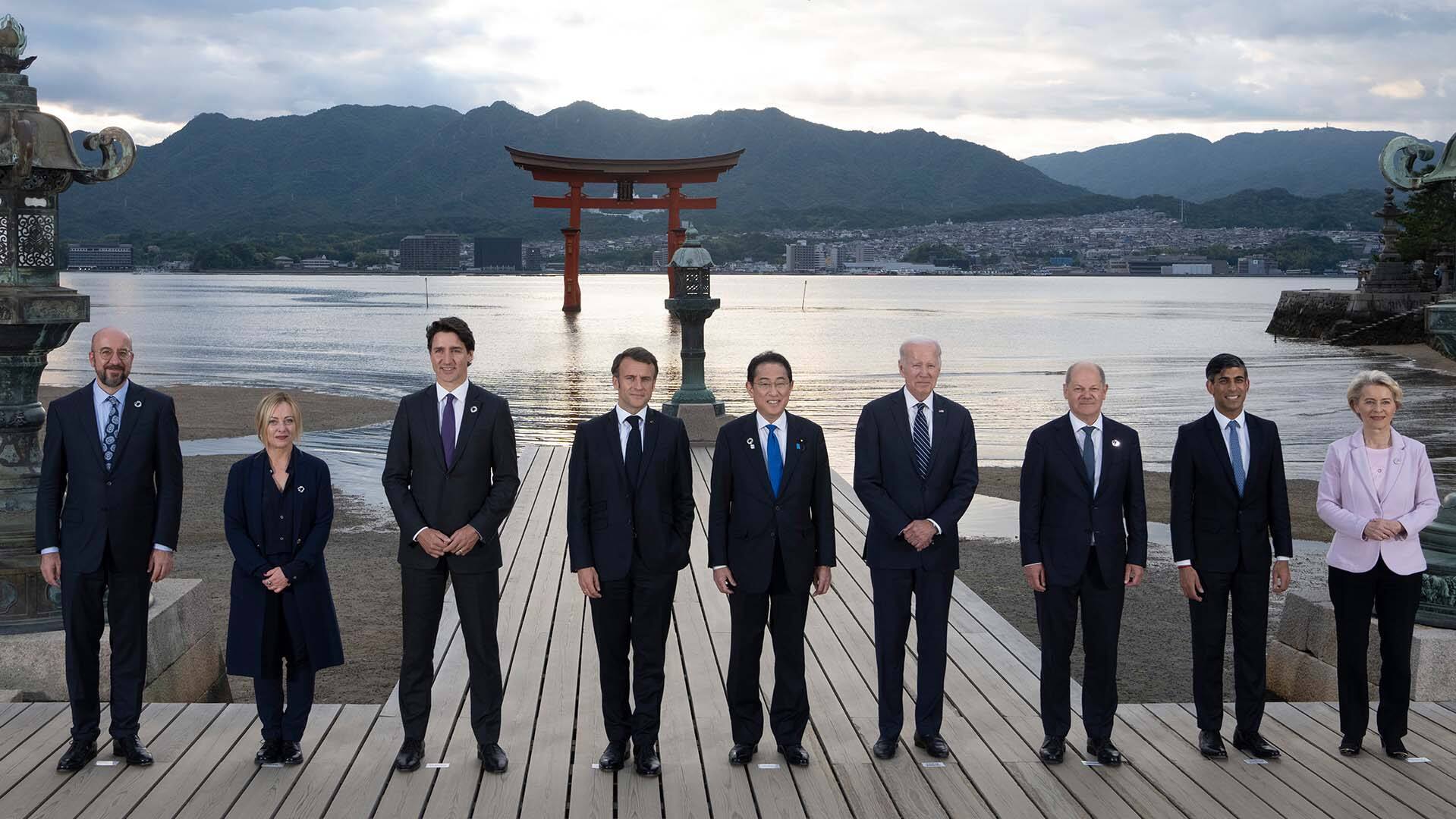Trudeau raised issue of foreign interference with other leaders, senior Canadian official says.

Leaders of the world’s top democratic industrialized nations cleared the decks for the arrival of Ukrainian President Volodymyr Zelenskyy, who touched down in Japan on Saturday.
The issuing of the communiqué, usually done on the last day of the annual G7 summit, was expected to be bumped up to today, a senior Canadian official said at the start of the second day of the three-day meeting in Hiroshima.
“This changes a little bit how the summit rolls out, right?” said the senior official, who has knowledge of the file but was not authorized to speak publicly.
Zelenskyy, who arrived on a French government jet, is slated to meet with all of the leaders and update them on the progress of the war against Russia.
Zelenskyy will make case to observer countries, too
It is, however, among the leaders of non-aligned countries — which have been invited to the annual meeting as observers — where the Ukrainian president stands to possibly make the most progress.
“I think the global south has voted largely with the G7, but they haven’t participated in sanctions,” said the official, referring to votes at the United Nations condemning Moscow’s full invasion of Ukraine last year.
“They haven’t participated in any kind of full-throated condemnation. I do think that with Zelenskyy here in person and presumably able to make his case directly to those leaders in bilaterals, he can stress that security is indivisible.”

Reports in the Indian media on Saturday say Prime Minister Narendra Modi and Zelenskyy will meet on the sidelines of the meeting in Japan, their first face-to-face encounter since Russian troops unleashed a full onslaught on Feb. 24, 2022.
The two leaders have spoken twice by phone.
“I do think it’s an opportunity for Zelenskyy, in person this time, to kind of make his case, which is harder to do on a Zoom call,” said the Canadian official.
Advanced warplanes
G7 leaders had conversations around a proposal to train and supply Ukraine with advanced warplanes, the official added.
U.S. President Joe Biden told allies he’ll support joint training efforts involving allied F-16s. Ukraine has been arguing for months it needs advanced fighters to retake territory lost to the Russians early in the war.
Separately, the topic of foreign interference was raised by Prime Minister Justin Trudeau at a working dinner with other leaders on Friday night.

G7 leaders meeting focuses on Russia, nuclear disarmament
G7 leaders gather in Hiroshima, Japan, and call on Moscow to return to nuclear disarmament efforts while imposing new sanctions on Russians who support the war in Ukraine.
“The prime minister raised it … fairly significantly, at the foreign policy dinner,” said the official, who suggested the final communiqué will contain, at Canada’s insistence, some language related to foreign interference by countries such as China.
It’s not just interference in democratic institutions, the official said, but also economic issues such as the theft of intellectual property.
The G7, composed of the United States, Japan, Germany, France, Britain, Italy and Canada, has been increasingly focused, U.S. officials say, on managing what they see as considerable security risks with China while maintaining critical trade ties with the country.
G7 leaders planned to outline steps to protect sensitive technology, including outbound investment measures, in their communiqué, White House national security adviser Jake Sullivan told reporters at a briefing in Hiroshima on Saturday.
Members of the group were looking to “de-risk, not decouple” from China, he said.
The leaders would outline a common set of tools to address economic coercion, including steps to build more resilient supply chains and efforts to protect sensitive technologies through export controls and outbound investment measures, Sullivan said.
ABOUT THE AUTHOR

Senior reporter, defence and security
Murray Brewster is senior defence writer for CBC News, based in Ottawa. He has covered the Canadian military and foreign policy from Parliament Hill for over a decade. Among other assignments, he spent a total of 15 months on the ground covering the Afghan war for The Canadian Press. Prior to that, he covered defence issues and politics for CP in Nova Scotia for 11 years and was bureau chief for Standard Broadcast News in Ottawa.
With files from Reuters
*****
Credit belongs to : www.cbc.ca
 Atin Ito First Filipino Community Newspaper in Ontario
Atin Ito First Filipino Community Newspaper in Ontario






